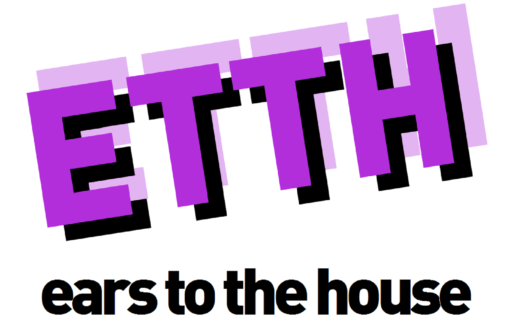
When you’ve spent a little bit of time studying the mainstream dance music magazines, you’ll notice a few things. For example, there’s surprisingly little journalism in them. Many of them tend to run a rolling news agenda dictated largely by what PR companies have packed into their inboxes that morning.
And you’ll also notice the majority of them are written from a more left-wing perspective. Given the roots of dance music, this isn’t exactly surprising. But the fact they don’t even bother try to provide any kind of balance suggests a sort of groupthink is very much in place. Much of the dance music press today is filled with left-wing interns who’ve just come out of university – who spend their time with the few older staff who haven’t been sacked yet, who are still in the left-wing phase they first entered at the age of 15.
Now, this blog doesn’t tell you what to think. Quite simply, I tell you what I think, and then it’s up to you whether you agree with me or not. I’m not going to think worse of anyone just because they disagree with me on something. So, let’s get to the crux of this post.
Late last Friday afternoon, Mixmag published a rather long article about what they called “DJ diversity clauses”. The idea behind this appears to be to stick something inside DJ contracts that they won’t play on lineups that consist of mostly or entirely white performers – and they’re pushed by certain types who are rich enough to forego bookings in the name of what they brand “diversity”.
Firstly, I must note the timing of this article was incredibly suspicious. It was released late on a Friday afternoon – a traditional dumping ground for news just ahead of the weekend. And somewhat unusually, Mixmag have barely pushed this article on any of their social media platforms at the time of writing.
Which is hardly surprising, because they are an utterly terrible idea, for several reasons. Firstly, the DJ scene is already rife with cronyism – and this would just allow more of it to happen. And not just that, but it would give the practice a veneer of respectability it simply wouldn’t deserve. Your DJ friend deserves to be booked because they’re good at what they do, not because they’re your friend.
For the avoidance of doubt, I am against DJ diversity clauses of any kind. I believe the only criteria for getting a job should be merit. The best person for the job should do it. If the lineup is the best of the best and 75% of them happen to be black, that’s the way it should be. There are plenty of insanely talented DJs out there of all race and colours and they deserve to be seen and heard. But this is not the answer.
This smacks me as left-wing idealism which doesn’t get to the root of the problem. The result of this would be whenever a lineup is announced and the majority of artists are black, Asian or anything else, a lot of people’s first thought will be those people are box tickers. They’re simply there so someone somewhere can tick a box and feel better about themselves.
On the one hand, they could be right. On the other hand, this is deeply insulting towards people who are actually there on merit and just happen to have a different skin colour. Imagine, also, for a minute that this was the other way round. If contracts stipulated that white DJs should refuse to play on a lineup made mostly of black DJs, you wouldn’t be able to hear anything over the shrill outrage from the dance music press.
The real problems, in the meantime, lie unaddressed due to left wingers wanting to feel better about themselves whilst not having done anything. Those real problems include racism in the music industry – fact is a lot of black DJs aren’t being booked because of that. Or what about promoters who are under the impression a black face on a lineup will reduce ticket sales?
The other problem, as I alluded to earlier, is the fact the DJ scene is already rife with cronyism. Lineups at the festivals are all the same, and that’s because agencies are pushing their own acts onto bills. Promoters, booking people and all the rest are engaged in a big game of back-scratching. This is a major problem within the scene, and DJ diversity clauses will do nothing to stop it. If anything, they could make the problem significantly worse.
Let’s also consider one other thing – the world is starting to emerge from a pandemic. It’s not over yet, but the clubbing world has largely reopened. The mere idea of asking white DJs to forego work in favour of someone of a different ethnicity after over a year of significant disruption to their line of work is not just a ridiculous ask, it’s monumentally stupid.
It tells you a thing or two when you do a search for the term “DJ diversity clauses” on Google, one of the first names to pop up in defence of them is Steve Aoki. The same Steve Aoki who’s net worth is estimated to be around $95million and who was also the heir to his father’s fortune from a restaurant franchise. Someone with millions in the bank can easily afford to skip a few gigs – but asking a DJ who hasn’t worked in over a year and who’s just trying to put food on his family’s table to ditch a lineup is just offensive.
Diversity in dance music? I’m all in favour of seeing lots of people from lots of backgrounds in the music world. But the idea you can force this kind of change about with contracts like this is laughable. It’ll just make the scene even more crony-laden and harder to enter than ever before. Aren’t there already enough white people with trust funds in dance music already?





Enjoyed reading this. Couple of things I disagree with. Firstly ‘left-wing’ is a bit of a catch-all term which I don’t think pins down the dance music press precisely enough. I’d say a more accurate term is performative, superficial virtue signalling. The Dance Music Press are obsessed with APPEARING to be anti-racist and diverse. T Secondly, this article is effectively just a critique of affirmative action – the idea of giving previously excluded and marginalised groups priority to account for past-discrimination – and I think your (no doubt well-intentioned) ideal of colour/gender blind equal opportunity is perhaps simplistic and naive. But there were certainly some interesting critiques and I enjoyed reading.